Peter Righton’s Diaries: Benjamin Britten, Peter Pears and Michael Davidson – Updated 27/8/15
Posted: May 11, 2014 Filed under: Abuse, Benjamin Britten, PIE | Tags: aldeburgh, Benjamin Britten, donald mitchell, eileen fairweather, liz davies, lord henniker, michael davidson, paedophile information exchange, peter pears, peter righton, suffolk, tom watson 22 Comments[EDIT: Since the publication of this post, Kevin Gosling, Director of Communications at the Britten-Pears Foundation, has responded. You can read his response here.]
[NEW EDIT: When I originally posted this, I omitted information about Peter Righton’s lover Richard Alston, as he was awaiting trial for offences against children. Since this has happened and Alston has been found guilty (see the reports from the trial here), I am now including more information about the references to Alston in Donald Mitchell’s book. There is more to be established about the precise nature of the relationship between Alston and Mitchell.]
I am publishing on here some information communicated to me by Tom Watson MP’s source on Peter Righton and networks of child abusers, which led to the infamous question from Watson to the Prime Minister on October 24th 2012 in which Watson identified a high-level paedophile ring linked to the aide of a former Prime Minister and thus to 10 Downing Street. Watson’s source is a former child protection officer who currently does not wish to be identified by name, but was involved in the investigations into leading paedophile and key Paedophile Information Exchange (PIE) member Righton (on whom, see this documentary, this article in the Mirror, this Guardian article by Nick Davies, this article by Liz Davies, this article by Christian Wolmar, and the series of articles to be found on the Spotlight and Needle blogs). .
As detailed by Watson himself, after Righton’s 1992 conviction on child pornography, he moved to live in a cottage on the estate of the eighth Lord Henniker, in Thornham Magna, North Suffolk, and was allowed to use the estate for special holidays for vulnerable children from Islington (at the very time when there was an epidemic of child abuse in Islington care homes – see here and here for vital material from the journalist Eileen Fairweather and former social worker Liz Davies (now Reader at London Metropolitan University) who brought the scandal to public attention). The Chief Constable of Suffolk visited Henniker personally to warn him that Righton was a career paedophile, but he ignored this advice, and Righton was able to continue hosting children on the estate until his death in 2008. Just this week one man has spoken out about his experiences being trafficked around the country to be abused by strangers whilst in the Suffolk care system, and named Righton as part of the operation.
The important information is the following: in Righton’s diaries, he frequently referred to Benjamin Britten, Peter Pears and Michael Davidson as ‘fellow boy-lovers’, and also spoke of how important to him (Righton) were their get-togethers at Snape Maltings. Both Richard Alston and Peter Righton is also thanked in the preface to Donald Mitchell’s book Britten and Auden in the Thirties: The Year 1936: The T.S. Eliot Memorial Lectures delivered in the University of Kent at Canterbury in November 1979 (London: Faber, 1981):
I am much indebted to Richard Alston without whose dedicated editorial assistance I should have found it difficult to see this revised edition through the press. [….] and to Peter Righton for correcting proofs.
Righton is also listed as a translator of some text in Mitchell’s facsimile edition of Mahler’s Seventh Symphony (Amsterdam: Rosbeek Publishers, 1995), and of some of Donald Mitchell and Andrew Nicholson (eds), The Mahler Companion (Oxford: Oxford University Press, 1999). Mitchell was very close to Britten, edited the first major study of his work, Benjamin Britten : a commentary on his works from a group of specialists (London: Rockliff, 1952), and later became Britten’s principal publisher at Faber Music, becoming a senior trustee of the Britten-Pears Foundation after Britten’s death in 1976. He has also been general editor of the major collections of Britten’s letters and diaries published by Faber & Faber.
As I mentioned in my earlier article on Clifford Hindley, various biographers, including the late Humphrey Carpenter in his Benjamin Britten: A Biography (London: Faber & Faber, 1992), John Bridcut in Britten’s Children (London: Faber & Faber, 2006), and Paul Kildea in Benjamin Britten: A Life in the Twentieth Century (London: Allen Lane, 2013) have investigated at some length whether there was anything untoward in Britten’s relationships with the numerous boys with whom he worked for performances of his operas, works of children’s choirs, and so on. Only a small amount of evidence has been uncovered of any exploitation through enactment of these desires, including the testimony of Harry Morris, who did accuse Britten of abuse (see Bridcut, Britten’s Children, pp. 46-53), and also various accounts chronicled by Bridcut of naked swimming and sharing of beds with boys aged as young as 11.
There is no question about the proclivities or activities of journalist Michael Davidson (1897-1976). His 1962 autobiography The World, The Flesh and Myself (London: Arthur Barker, 1962) begins with the line ‘This is the life story of a lover of boys’, whilst his later memoir Some Boys (London: David Bruce & Watson, 1972) is nothing less than a stomach-churning account of international child sex tourism and assault, presented quite shamelessly. Below I reproduce scanned copies of the chapter of the book dealing with London. Davidson’s brother-in-law Christopher Southward taught violin at Gresham School, in the music department run by Walter Greatorex, who taught Britten at the school; Greatorex introduced the 26-year old Davidson to the then 16-year old W.H. Auden (Neil Powell, Benjamin Britten: A Life for Music (London: Hutchinson, 2013), pp. 29-31).
There is other information I am not in a position to print here for legal reasons; furthermore the information from Righton’s diaries of course constitutes claims rather than yet-proven allegations. The possibility that Britten and Pears were part of Righton’s circle (and thus perhaps also to other members of PIE) does not in itself prove anything, but undoubtedly this needs to be investigated, together with the meetings in Snape Maltings. But in order to help get to the bottom of the networks of abusers who have corrupted British society and childhood for decades, I would implore anyone with further information on the connections between and activities of Righton, Britten, Pears and Davidson to come forward if they feel ready to do so (I am happy to let anyone know by private e-mail – ian@ianpace.com – police or other contacts to whom they could speak).
I will add further information at a later date.

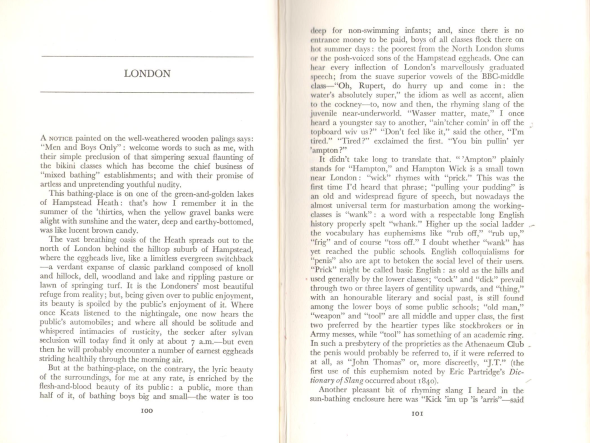
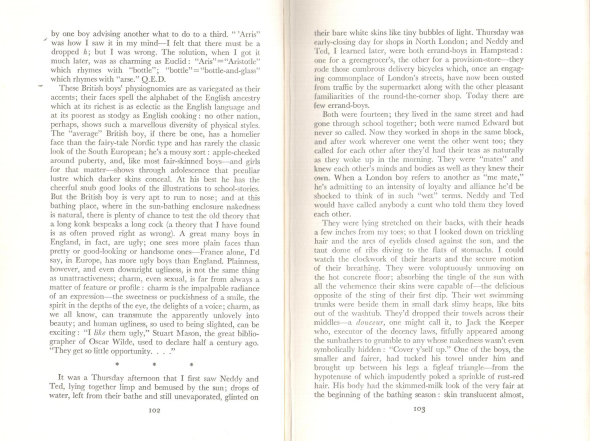
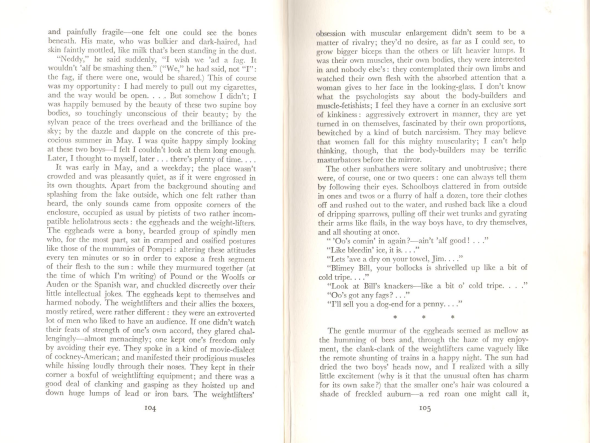
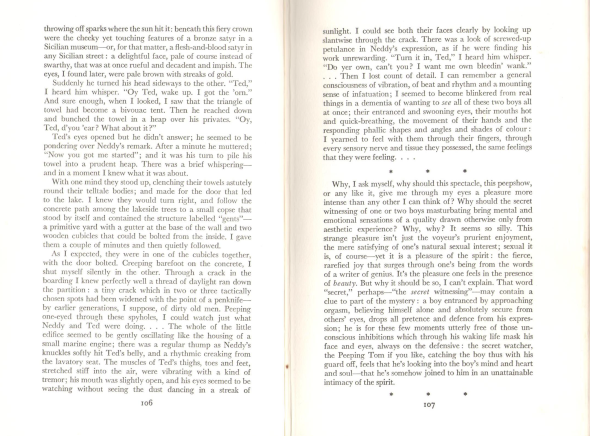
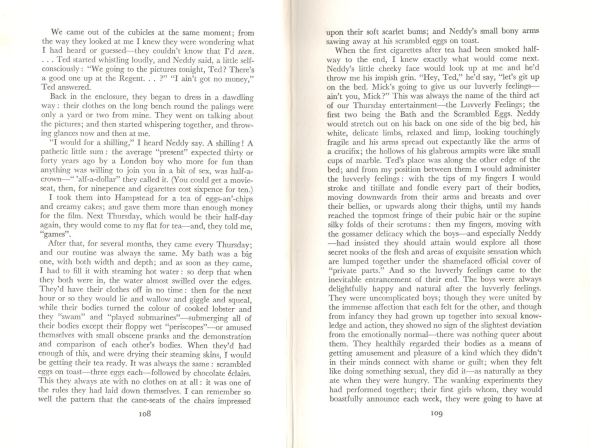
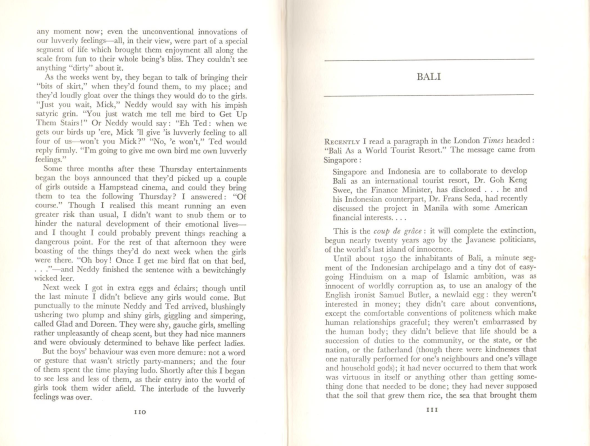
Reblogged this on Thinking Out Loud.
Reblogged this on theneedleblog.
http://books.google.com/books?id=xbIZAQAAIAAJ&q=%22Peter+Pears+are+reproduced+courtesy%22&dq=%22Peter+Pears+are+reproduced+courtesy%22&hl=en&sa=X&ei=dIFxU4yuDZbJsQSYq4LIAg&ved=0CC0Q6AEwAA
Norman Del Mar
Richard Alston
Thames Publishing, Aug 3, 2000
[Page 7]
I acknowledge the following institutions for their ready provision of archive material and information: the Britten-Pears Library, Aldeburgh (Dr Jenny Doctor and Keiron Cooke), the BBC Written Archives Centre, Caversham (Mrs Jacqueline Kavanagh), the Royal College of Music (Dr Peter Horton), the National Sound Archive and the British Library Newspaper Library. Quotations from BBC correspondence appear by kind permission from The BBC Written Archives Centre, Caversham Park, Reading RG4 8TZ.
The quotations from the letters of Benjamin Britten are ° copyright the Trustees of the Britten-Pears Foundation and may not be further reproduced without the written permission of the Trustees.
Quotations from the letters of Norman Del Mar to Benjamin Britten and Peter Pears are reproduced courtesy The Britten-Pears Library.
Individuals who kindly provided help and/or information: Alan Blyth, John Davies, Lennart Dehn, Robin Del Mar, Ronnie Del Mar, Keith and Angela Dugdale, Catherine Ford, Sir William Glock, Lesley Greenhough, Andrew Nicholson, Philip Reed, ***Peter Righton***, Jens Rossel, and Hugh Wood. If any name has been inadvertently omitted, this will I trust be forgiven.
***
http://en.wikipedia.org/wiki/Norman_Del_Mar
Norman Del Mar
Norman Del Mar CBE (31 July 1919 – 6 February 1994) was a British conductor, horn player, and biographer. As a conductor, he specialized in the music of late romantic composers; including Edward Elgar, Gustav Mahler, and Richard Strauss. He left a great legacy of recordings of British music, in particular Elgar, Ralph Vaughan Williams, Frederick Delius, and Benjamin Britten. He notably conducted the premiere recording of Britten’s children’s opera Noye’s Fludde.
In 1949 Del Mar was appointed principal conductor of the English Opera Group, in which post he remained until 1954. In 1952 he conducted the BBC Symphony Orchestra in the world premiere of Franz Reizenstein’s radio opera Anna Kraus. He then held chief conducting posts with the Yorkshire Symphony Orchestra (1954) the BBC Scottish Symphony Orchestra (1960–1965), and the Aarhus Symphony Orchestra (1985–1988). A regular at the BBC Proms concerts, he conducted the famous Last Night on three occasions: 1973, 1975, and 1983. He was also ‘permanent guest conductor’ with the Göteborg Symphony Orchestra from 1969-1973.
In 1953 Del Mar joined the faculty of the Guildhall School of Music and Drama where he conducted the school’s orchestra and taught conducting until 1960. In 1972 he began to teach conducting at the Royal College of Music, serving until 1990. He also conducted the Royal Academy of Music’s orchestra from 1974-1977.
http://books.google.com/books?ei=fIZxU7u2LKnLsQSrgIHgBQ&id=BcwXAQAAIAAJ&dq=%22peter+righton%22+orchestra&focus=searchwithinvolume&q=%22peter+righton%22
Keep these letters, please!: a written portrait of the Concertgebouw Orchestra 1904-1921
Truus de Leur, Henriette Straub
Royal Concertgebouw, 1998
[Page 12]
We should like to thank:
Prof. Dr. Marius Flothuis (Amsterdam), Prof Dr Eduard Reeser (Bilthoven), Drs Frits Zwart (Curator of the Mengelberg Collection at the Haags Gemeentemuseum, The Hague) and especially Johan Giskes (Music Historian at the Gemeentearchief Amsterdam) for their invaluable help in deeciphering the handwriting, in dating the letters, in providing knowledge on the history of musical life in Amsterdam at the beginning of the twentieth century – all at short notice;
Ian Borthwick (Amsterdam), Nicholas Pretzel (London) and ****Peter Righton (Diss)**** for translating the letters into English
***
https://www.google.com/maps/place/Diss/@52.3811714,1.1198396,11z/data=!4m2!3m1!1s0x47d993453644bce7:0xe5513dfa0dd8b298
The town of Diss is just above Thornham Magna
***
https://www.google.com/#q=%22(London)%3B+Edward+R.+Reilly+(Poughkeepsie%2C+New+York)%3B+Peter+Righton+(Diss)%22+
The Mahler Companion – Page ix – Google Books Result
Donald Mitchell, Andrew Nicholson – 2002 – Music
… (London); Graham Melville-Mason (London and Prague); O. W. Neighbour (London); Edward R. Reilly (Poughkeepsie, New York); Peter Righton (Diss) …
http://uir.unisa.ac.za/bitstream/handle/10500/1150/dissertation.pdf?sequence=1
“WHAT DOES THAT MEAN?” OBJECTS OF SIGNIFICANCE IN RESIDENTIAL
PROGRAMMES FOR YOUNG PERSONS IN SOUTH AFRICA
PHINEAS LESIBA MOLEPO
[Page 46]
The reason for choosing a qualification or experience as a selection criteria was
to ensure that participants had been exposed to the idea and importance of
observation as a child and youth care skill. In his address at a child and youth
care conference, Righton (2005) mentioned that intimate knowledge of each child
depends upon constant observation and accurate interpretation of our
observations.
…
[Page 101]
Some young persons have had a troubled past to the extent that they do not
want to have anything that is associated with it. A child severely damaged by
faulty and destructive relationships may very badly need a period in which his
relationships with adult carers can be relatively superficial. This may be merely a
transitional need (Righton, 2005).
…
[Page 110]
Righton, P. 2005. Address to a child and youth care conference in Johannesburg
nearly 25 years ago. http://www.cyc-net.org/cyc-online/cycol-0205-
righton2.html. Accessed February 05, 2007.
***
http://www.cyc-net.org/cyc-online/cycol-0105-righton.html
Reading for child and youth care people
January 2005 Issue 72
The Child Care Worker – I
Peter Righton addressed a child and youth care conference in Johannesburg nearly 25 years ago.
…
This feature: Extracts from Righton, P. (1983) ‘The Child Care Worker’ and ‘Going Out’ in The Children’s Home: A place in which to grow, a place from which to go. Papers delivered at the 1981 Biennial Conference of the National Association of Child Care Workers. Cape Town: NACCW
…
http://www.cyc-net.org/cyc-online/cycol-0205-
righton2.html
…
We now come to skills for strengthening. One is the promotion of shared responsibility, and the confrontation of children with the reality of their behaviour at a stage at which they can bear it. There is no way that residential care can be, at times, other than stern. I do not, of course, mean the wielding of sticks, punishment, tough and tight regimes of control. What I do mean is that children in care need to be faced with the consequences of their behaviour, and we are irresponsible if we deny children this experience. But we are equally irresponsible if, in doing so, we merely impose on the child our own view of what that reality is. Hence the linking of it with shared responsibility. Shared responsibility is not my word, it comes from ***David Wills***, a man who pioneered communities in which young people learned to grow and to cope independently of the caring environment in which they lived. It means allowing children to make decisions, appropriately to their age, possibly to make mistakes, and standing by, sometimes anxiously, as care workers as they face the realities they have created.
***
https://www.google.com/search?tbm=bks&hl=en&q=%22Peter+Righton%22+%22The+Making+of+Peter+Grimes%22&=
The Making of Peter Grimes: Notes and Commentaries
Paul Banks – 1996 – Music
… Josephine Launchbery, Colin Matthews, Larry McKinna (British Pathe News), Victoria Martineau (British Council), ***Peter Righton***, Kim Sargeant (Cheltenham International Festival of Music), Leonard Thompson, Malcolm Walker, David Withey …
…
The premiere of Peter Grimes on 7 June 1945 announced the emergence of the first great composer of opera in English since Purcell. Surviving documents offer evidence of the complex interaction of differing ideas about the possible shape and content of the new work, most notably the composition draft, which these essays are particularly concerned to illuminate. They juxtapose historic material with fresh studies: three items written by members of the team involved in the 1945 production are set alongside specially-commissioned articles, with the three-fold intention of presenting the views of some of the creators of the opera, outlining the work’s early history, and offering contemporary perspectives on its historical context and its message.Professor PAUL BANKS is Research Development Fellow at the Royal College of Music.Contributors: PAUL BANKS, PHILIP BRETT, BENJAMIN BRITTEN, ERIC CROZIER, DONALD MITCHELL, PETER PEARS, PHILIP REED, ROSAMUND STRODE. Packed away in its pages is a very large amount of new information. TIMES LITERARY SUPPLEMENT A fitting tribute to the opera’s enduring international stature, and undoubtedly (a) significant achievement in Britten studies. MUSIC AND LETTERS
http://www.electronicbookreview.com/thread/electropoetics/prodigal
The Haunting of Benjamin Britten
by John Matthias .
1999-01-01
John Matthias reflects on Humphrey Carpenter’s biography of 1992, in light of earlier work by Auden and recent findings.
Almost fifteen years ago I reviewed Humphrey Carpenter’s biography of W.H. Auden in The Southern Review (Winter, 1983), along with two books treating Benjamin Britten’s collaborative work with Auden and Ronald Duncan – Donald Mitchell’s Britten and Auden in the Thirties and Duncan’s autobiographical Working With Britten. Because Carpenter’s subsequent biography of Britten (Faber & Faber, 1992) draws both on his own earlier study of Auden as well as on the Mitchell and Duncan volumes, I need to repeat a few things I said more than a decade ago. Most of all, because Carpenter makes of the Auden letter which I quoted from Mitchell’s notes the key to understanding Britten’s life and work, I need to quote and comment on that strange and prophetic document once more.
During the comparatively brief phase of their collaborative work, Auden challenged and dominated Britten like no one else in his life. Having followed Auden to America in 1939, Britten and Peter Pears decided in 1941 to return to England, a decision which Auden regretted and which led him to write in his characteristically intimidating way about the dangers he foresaw for his friend. “Goodness and Beauty,” he began, “are the results of a perfect balance between Order and Chaos, Bohemianism and Bourgeois Convention. Bohemian chaos alone ends in a mad jumble of beautiful scraps; Bourgeois convention alone ends in large unfeeling corpses.” It becomes clear that Auden is really talking about the artist’s need to locate and release potentially destructive energies in himself while simultaneously controlling, making intelligible, and indeed domesticating them through the imposition of form.
Every artist except the supreme masters has a bias one way or the other. The best pair of opposites I can think of in music are Wagner and Strauss. (Technical skill always comes from the bourgeois side of one’s nature.)
For middle-class Englishmen like you and me, the danger is of course the second. Your attraction to thin-as-a-board juveniles, i.e. to the sexless and innocent, is a symptom of this. And I am certain too that it is your denial and evasion of the demands of disorder that is responsible for your attacks of ill-health, i.e. sickness is your substitute for the Bohemian.
Wherever you go you are and probably always will be surrounded by people who adore you, nurse you, and praise everything you do, e.g. Elisabeth, ****Peter (Please show this to P to whom all this is also addressed)****[???]. Up to a certain point this is fine for you, but beware. You see, Bengy dear, you are always tempted to make things too easy for yourself in this way, i.e. to build yourself a warm nest of love (of course when you get it, you find it a little stifling) by playing the lovable talented little boy.
If you are really to develop to your full stature, you will have, I think, to suffer, and make others suffer, in ways which are totally strange to you at present, and against every conscious value that you have; i.e. you will have to be able to say what you never have had the right to say – God, I’m a shit.
…
The early days of the Aldeburgh festival must have been remarkable. I began to attend it myself only in the 1960s after the concert hall had been built at the Snape maltings, but even then one got a sense of what the initial excitement, informality, and charm of it all must have been like at performances that were still being given in the old Jubilee Hall and the local churches. Britten, of course, was not only a director of the festival but an active participant. He made much of his impact as a performer and conductor, and both his virtuoso skills as Pears’s accompanist and his brilliant conducting of his own and other composers’ works were always part of the Aldeburgh experience. The local community – and later on a range of wealthy patrons – supported and attended some events that were easy to understand and aimed at giving listeners uncomplicated musical pleasures, but also new and demanding works by Britten himself and other contemporaries. Britten, Pears, and the musicians who came to perform were accessible and eager to please, and by all accounts people experienced something magical in Britten’s presence. Janet Baker talks about a sensation “almost like [that] of being in love,” and Robert Tear remembers “those times when Ben was so wonderfully charming that when he spoke to me the world seemed to stop.” And it was not only fellow musicians like Baker and Tear who felt this; people who were employed by Britten, ordinary Aldeburgh residents, children, even fishermen like his friend Billy Burrell report, in the early days, similar reactions.
…
The catalogue of cruelties committed by “Bad Ben” while “Good Ben” continued doing his best to compose, perform, conduct, and be a responsible citizen rather than an autocratic monarch is depressingly long. To begin with, his musical standards were extremely high and he would frequently find that a colleague, often one who had been a close friend, was no longer meeting them. Musicians were dismissed, soloists not invited back, former proteges dropped without a word, singers cut dead in the street, an ailing member of the orchestra verbally abused from the podium. Librettists, in particular, had a rough time – Auden, Montague Slater, Ronald Duncan, Eric Crozier, E. M. Forster, and William Plomer all being replaced in their turn with little thanks and no warning. In a book on Britten carefully supervised by the composer himself, Imogen Holst omits any reference at all to Salter, Duncan, or Crozier. Crozier, not only a librettist, but a founding father of both the English Opera Group and the Aldeburgh Festival, felt that Britten always had “a particular favorite upon whom he would lavish affection, while foreseeing with a grim kind of pleasure the day when that special friend would be cast off.” Britten told Crozier that Montague Slater was “one of [his] corpses,” adding that Crozier himself would “be one, too, one day.” Even Auden, to the end of his life, referred to Britten’s break with him as “a permanent grief.”
Instead of the sense of generous inclusion that most people appeared to feel in the early years of the festival, there was now a sense of exclusion. George Malcolm speaks of “an organization called The Club. It consisted of people who used to sing or play for Ben.” The old feeling of community diminished both among those who came to play or sing and those who came to listen. Meanwhile, Britten, Pears, and whoever was temporarily part of the entourage sometimes looked, as Robert Tear caricatures them, like “Pope, King, ****a couple of sycophantic academics**** and perhaps a handmaiden or two strewing palms.” Tear sums up the atmosphere of Aldeburgh as he found it in the later years as “weird, personal, unhealthy, obsessive, perhaps incestuous, but above all these seductive.” He remembers a place characterized by “waspishness, bitterness, cold, hard eyes…cabalistic meetings…secrecy.” Of Britten, he says, “there was a great, huge abyss in his soul.”
…
I just noticed that the Norman Del Mar book posted above was written by Richard Alston. I’m supposing that this is the same Richard Alston who was Peter Righton’s roommate, described as “married” to Righton since 1974, and was headmaster of New Barns School and had a brother who was a British Ambassador to Muscat in the Middle East and was arrested last year under Operation Cayacos for historic child sexual abuse.
http://books.google.com/books?id=9mikFV-eSzkC&pg=PA17&hl=en&sa=X&ei=b1F1U9CJHPS1sASlkoDoDw&ved=0CC0Q6AEwAA#v=onepage&q&f=false
and who was also thanked first in “Britten and Auden in the Thirties: The Year 1936 : the T.S. Eliot Memorial”
edited by Donald Mitchell
…
“Acknowledgements
“I am much indebted to Richard Alston without whose dedicated editorial assistance I should have found it difficult to see this revised edition through the press… and to Peter Righton for correcting proofs…”
…
I do appreciate you pointing out this information, of which I was aware, but would request that for now we refrain from discussing a figure who has already been arrested.
ian hello….lets not forget Peter Righton who was a journalist for Social Work Today publication and he also contributed to spartacus PAN in amsterdam with updates from SWT with items about Kincorra boys home in northern ireland and his experience in social work and pearls of wisdom about redheads and sexual choices…
and of course his friends at Social Work Today who defended him and other paedos since.
and the blogs they write on as well….”the jimmy saville fan club gang”
I don’t know those references to Righton’s contributions to PAN – where are they? Have all his writings from Social Work Today, which should be put up on the Spotlight blog at some point soon, I think.
yes it seems that peter righton was getting supported by spartacus
btw i often do contribute to spotlight…
[…] Peter Righton’s Diaries: Benjamin Britten, Peter Pears and Michael Davidson (11/5/14) […]
[…] top kiddies home expert is evil child-sex perv’, The Sun, September 17th, 1992). He also helped with translation and editing of some writings on music produced by Donald Mitchell, a major figure involved with the estate of Benjamin Britten and the Britten-Pears Foundation […]
[…] my article from May 11th, 2014 relating to the mention of Benjamin Britten and Peter Pears in the diaries of Peter Righton, I received the following communication from Kevin Gosling, Director of Communications for the […]
[…] Peter Righton’s Diaries: Benjamin Britten, Peter Pears and Michael Davidson (11/5/14) […]
[…] I intend soon to update most of these accordingly – mostly importantly this post and this one. Richard Alston contributed to various of books written or edited by Donald Mitchell, Benjamin […]
[…] Peter Righton’s Diaries: Benjamin Britten, Peter Pears and Michael Davidson – […]
[…] link […]
[…] link […]
You refer to Peter Righton’s diaries. How and where can these be consulted? If biographers have used them presumably they are in a library or archive somewhere.
It would be useful to know the dates and locations of his recorded meetings with Britten. Then these could be checked against other records for verification.
Does Davidson record specific meetings with Britten?